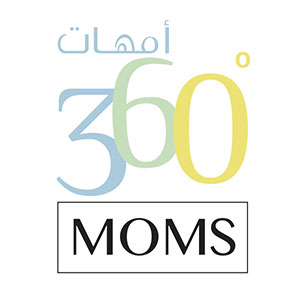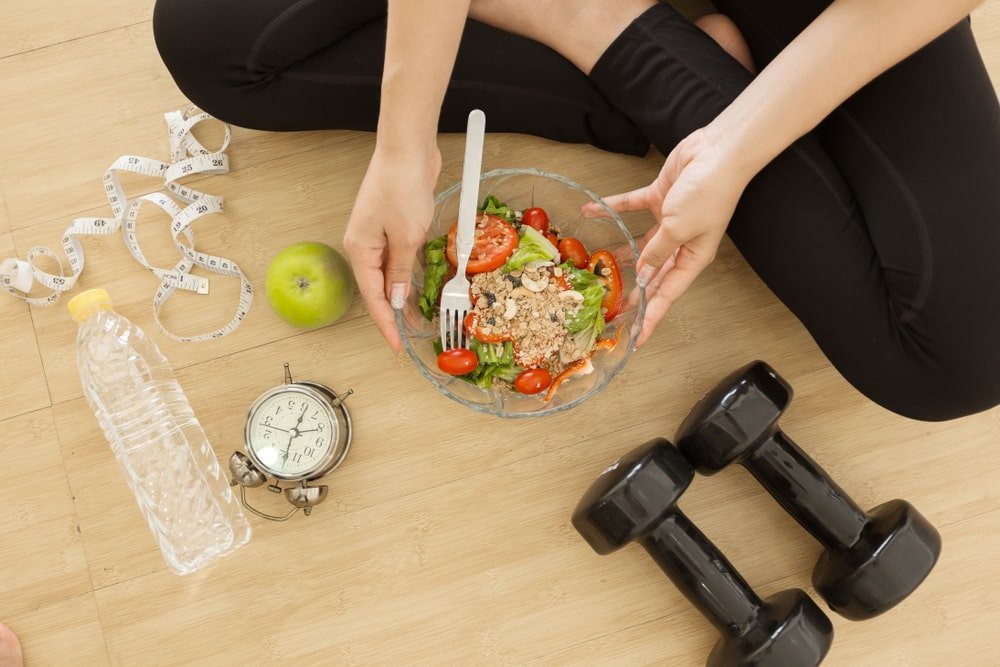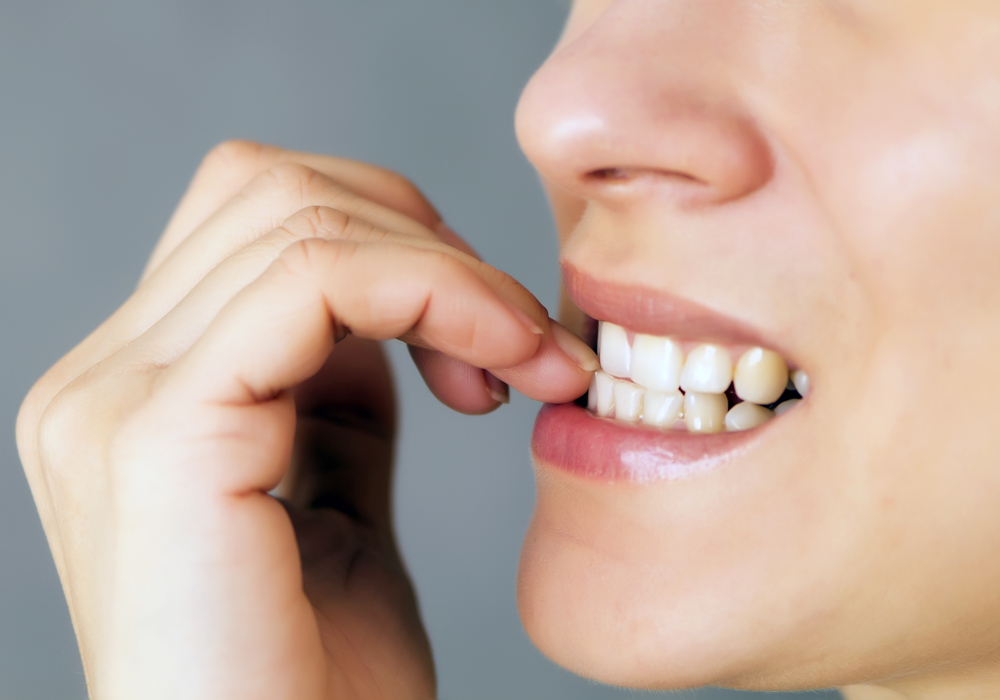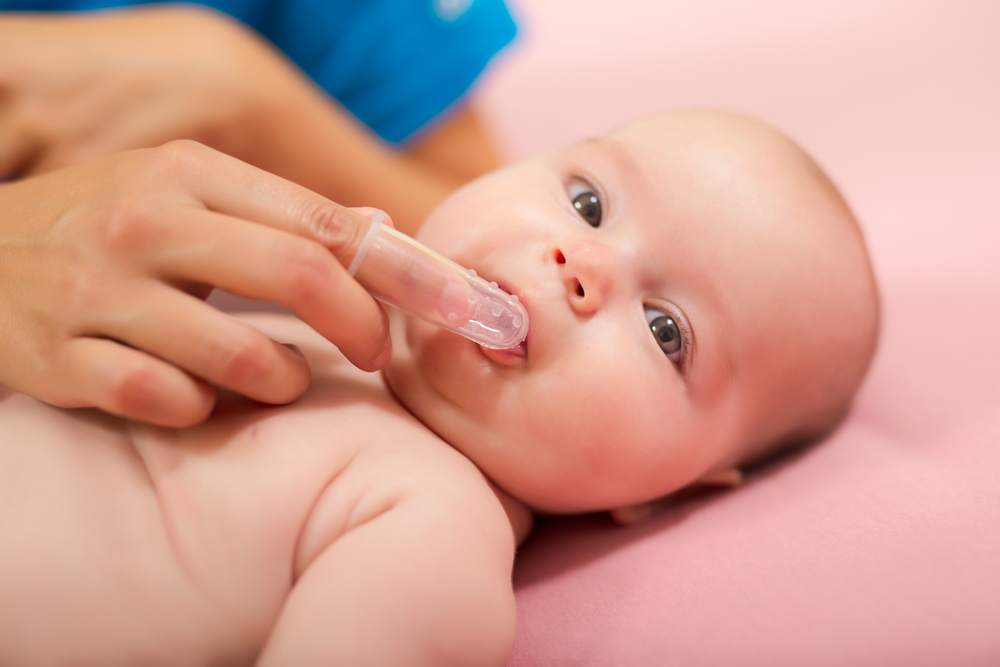Children's Health
7 Toxic products in your home you should be aware of!
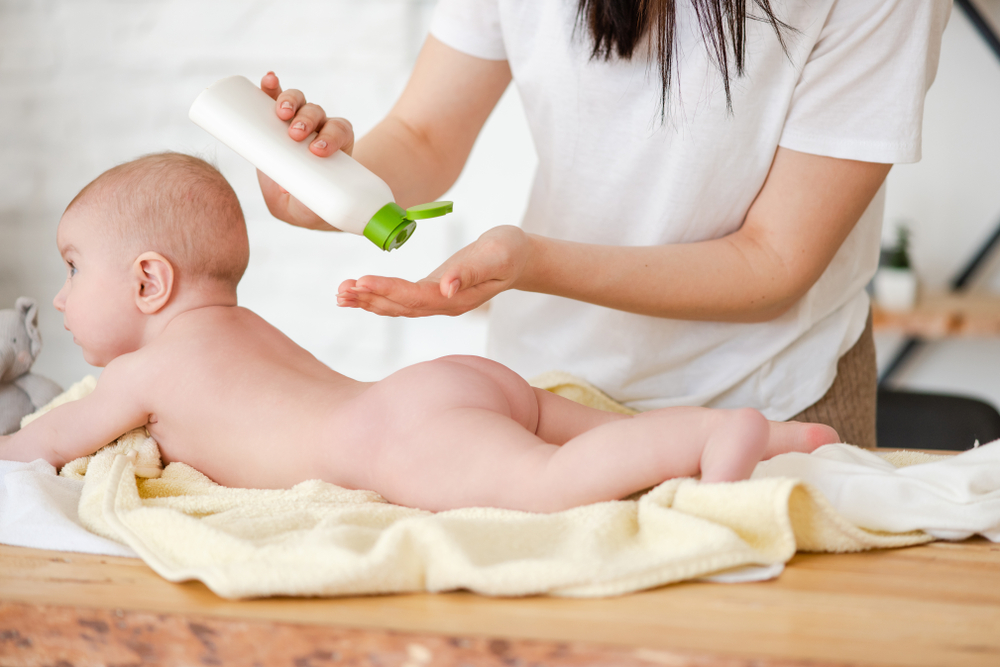
As you shop between the aisles of skincare products for children, you might feel confused trying to choose the right product for your child. Seeing all the colorful products, you will - most probably - choose the cutest one thinking that it must be as good as the beautiful package!
Right?
Wrong! You will be surprised to know that some companies use advertising and creative presentation methods to mislead the consumer about the fact that they add harmful ingredients to enhance the smell or texture of their products
Knowing this, you should be aware of ingredients and what is written on their leaflets, as studies have shown that our bodies absorb 60% of what we put on our bodies directly in the bloodstream!
So what can you do?
You don’t have to be familiar with every chemical component or ingredient, but you can always look for any unfamiliar ingredients online to see if it is safe for your baby or not.
To make this task easier for you, we have listed the top 7 toxic ingredients you should avoid when choosing your baby's skincare products and how to choose alternatives.
-
Talc
This powdered mineral is added to baby powder (and many other cosmetic powders). It’s used as a drying agent, but it’s a known lung irritant and may also be carcinogenic.
As Gillian Deacon describes in her book There’s Lead In Your Lipstick:
“The mineral talc tends to occur in rock mass formations that are contaminated with as asbestos, this carcinogenic contaminant is going to be carried over into any consumer product containing talc.”.
Alternative: You can use "Amina’s Organic Baby Ointment" to protect your baby’s skin from moisture, especially in the nappy area. It contains a blend of natural oils, herbs and beeswax to form a wonderful protective and nourishing barrier for your baby's sensitive skin.
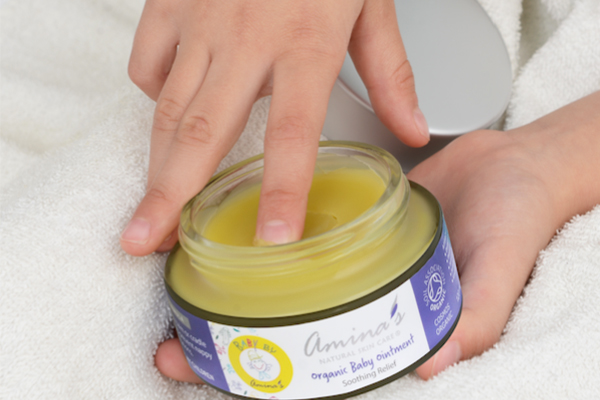
-
Fragrance
Fragrance is added to countless products, either to create a particular fragrance or to mask the odor of the chemicals used in production.
The problem with fragrance is that it’s the term used for whatever secret ingredients companies wish to add (they are not obligated to reveal what’s contained within “Fragrance”) and are generally made of coal- and petroleum-derived synthetic chemicals. The effects of fragrance are long-lasting and lingering.
They can cause respiratory, neurological, skin, and eye damage. There is evidence that exposure to fragrance as a child may lead to asthma. Fragrance is added to disposable diapers, baby powder, baby wash and shampoo, lotions, and many other baby products.
Alternative: All-natural products that contain plants or fruits- based oils have a nice fragrant smell, so you won’t feel guilty when using it, plus some of them have a soothing effect on babies, like Chamomile oil; it smells so fresh and relaxes the baby especially when used for massages.
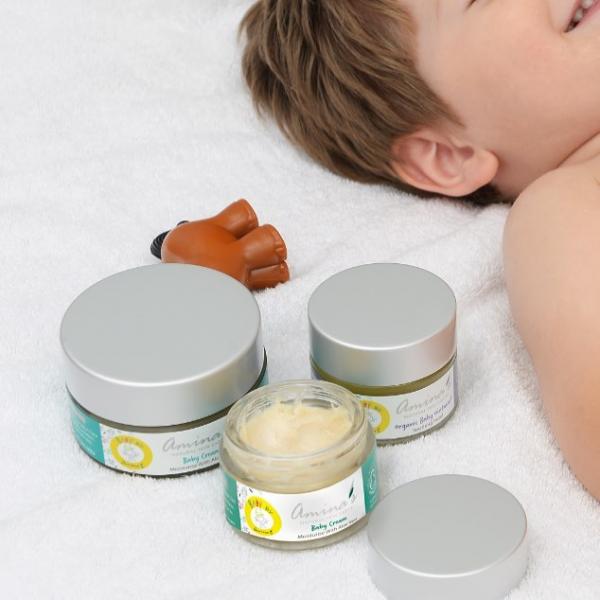
-
Propylene glycol
This chemical ingredient increases the skin's ability for absorption and may be carcinogenic. It opens the pores to allow chemicals to penetrate the skin more efficiently.
Propylene glycol is used in car wipers fluids and to de-ice airplanes, and yet is often used in baby wipes, which is not safe. It has lots of derivatives such as ethylene glycol (PEG) and polypropylene glycol (PPG), so beware when you read labels.
Alternative: It is always better to change your baby's diaper by washing the area with soap and warm water instead of using wet wipes so that your baby’s skin. This way you’ll protect your child from getting exposed to unsafe ingredients. And of course, use natural and organic soap made from olive oil or coconut oil mixed with other natural materials to keep the area soft and protected from bacteria.
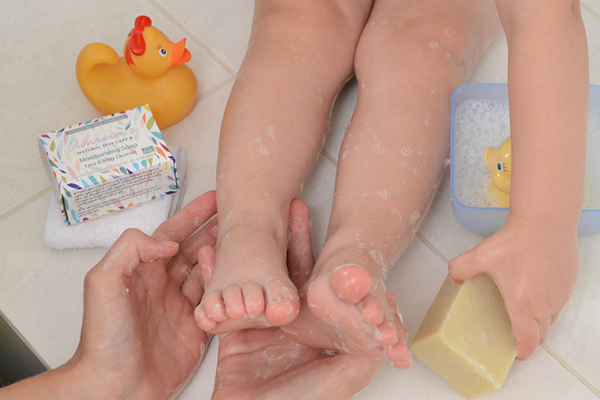
-
Mineral Oil
Baby oil is made of mineral oil mixed with fragrance, a bad combination. Mineral oil is a byproduct of petroleum processing and acts as a plastic wrap on the skin, preventing the skin's natural ability to detox.
Alternative: massage your baby or moisturize his skin using vegetable oils and safe organic extracts of fruits or herbs or even seeds such as chamomile oil or olive oil as they are rich in vitamins E, A, B1, B2, B6, calcium and other nutrients.
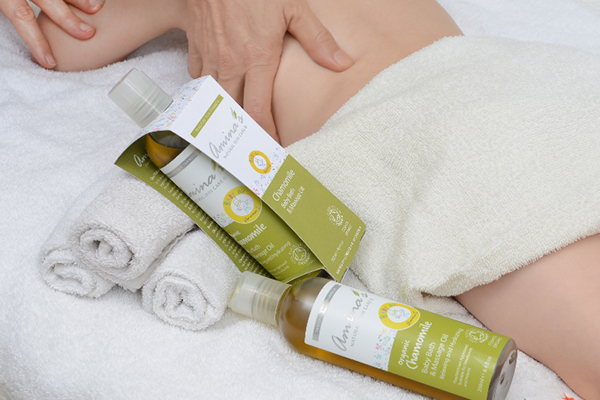
-
Trilocsan
Any product that mentions the phrase “antibacterial” means that it contains Trilocsan, a synthetic antibacterial and antifungal substance which is a carcinogenic endocrine disruptor that’s also harmful to the environment.
Alternative: There are many natural and essential oils that protect us from germs and bacteria. Many people use a mixture of water, lavender oil and tea tree oil for sterilization instead of using streamline cleaning products.
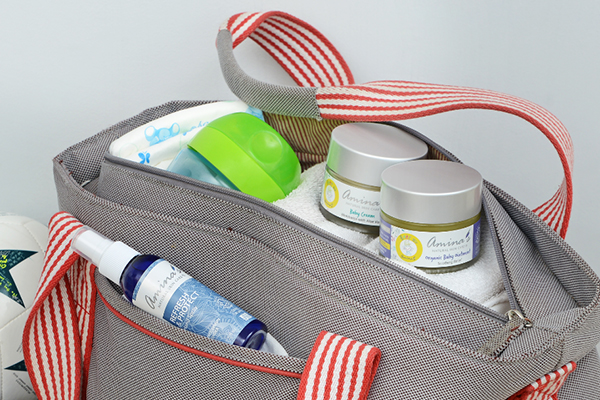
-
Parabens and its derivatives
Parabens are used as preservatives in cosmetics, pharmaceuticals, food and skincare products. When used as preservatives, parabens prolong the life of products and prevent harmful bacteria and mold from growing in them.
Parabens are thought to inhibit endocrine function, also known as chemicals that mimic hormones and thus may mimic estrogen, increasing the chances of developing breast cancer.
Alternative: Choose the products that are free of this substance and its derivatives, it is not enough to read this term on the package, make sure to read the ingredients listed on the label. Also look for reliable natural and organic products that have the stamp of an organic certification company such as COMOS Soil Association, USDA Organic, ECO CERT, etc.
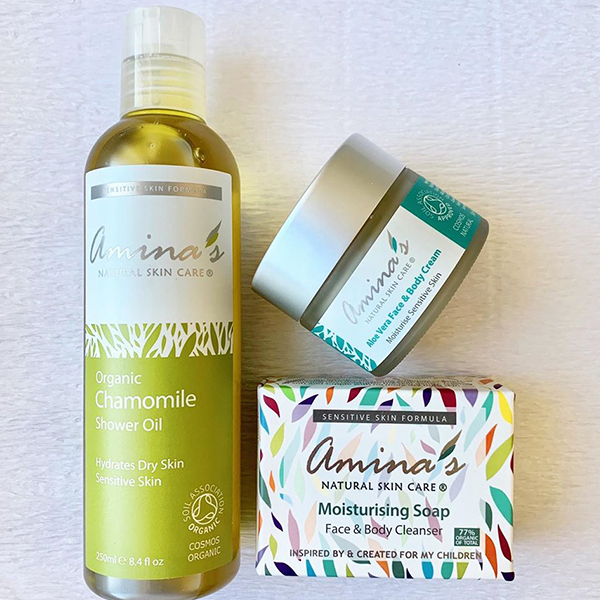
-
1,4-dioxane and ethylated surfactants
Dioxane is usually not included in the list of ingredients of the products but it is used in cosmetics and baby soaps to make them less harsh.
It is not mentioned by the producer because it is a contaminant that occurs when ethylene oxide (a known breast carcinogen) is added to other chemicals.
Therefore, avoid the selection of products whose components carry these three letters (ETH) such as polyethylene, polyethylene glycol sodium Laureth sulfate, ceteareth, oleth, oxynol, -xynol, and PEG.
Alternative: As mentioned earlier, "gentle on the skin" does not mean that it is free of chemicals, so the texture of the mixture in the product or the effect it leaves on the skin does not indicate its quality. Quality is always measured by ingredients. Natural oils and organic creams and ointments should be your choice… always.
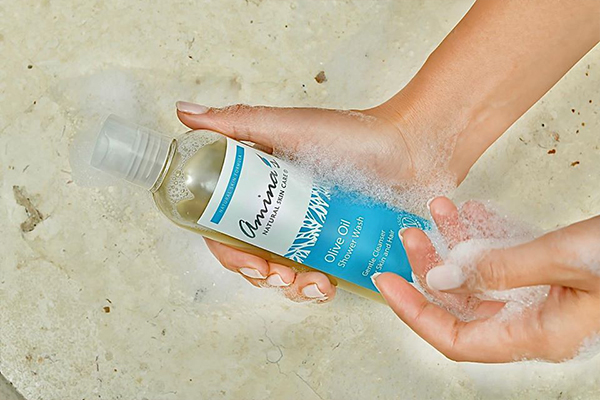
Don’t feel overwhelmed by this information; you don’t have to memorize the list! Take things step by step, save this article as a reference on your phone and get back to it whenever you go shopping. Later on, you’ll notice that you’ve mastered the art of choosing the right product for your child and yourself.
Amina’s Natural Skincare is a Jordanian manufactured brand that has at its core principles: producing safe, organic certified and effective skincare products and they believe in, and live by sustainable and organic philosophies. Applying these to all aspects of their products from sourcing of the raw materials and the design of their packaging to the manufacturing process, and their eco-factory.
Get 15% off on all products from Amina's for Mamas Rewards Cardholders. For more details you can visit this link /en/reward/aminas-0

